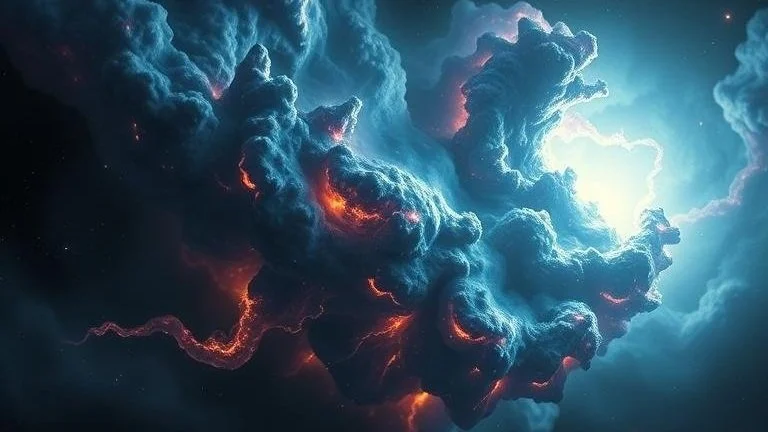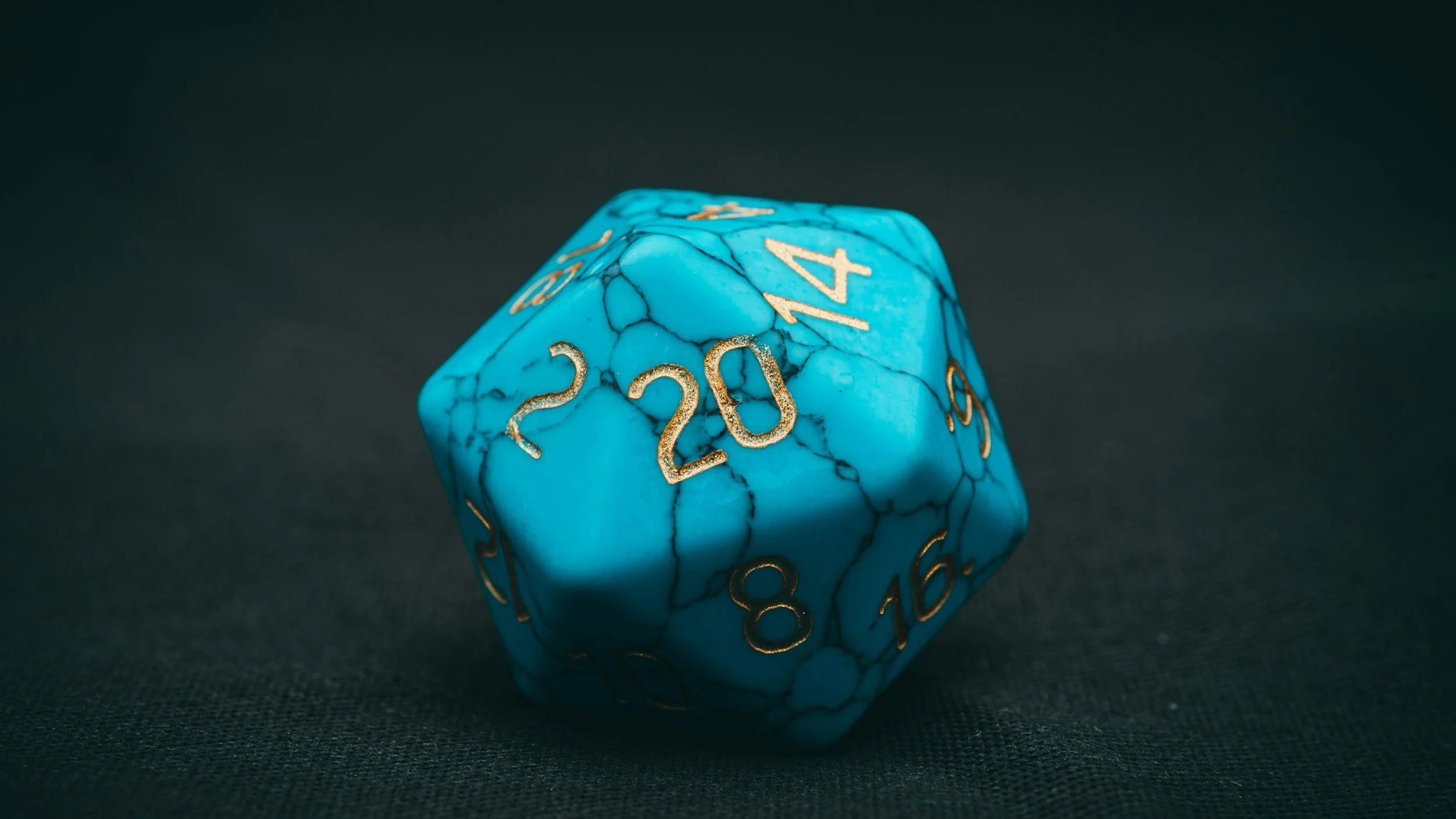The Unity: How I Explain Magic in D&D
/One of the biggest issues I have with D&D is that they don’t really explain how magic items work—or magic, for that matter. I mean, what is magic in D&D? How does it function? Where does the energy come from?
If these questions have kept you up at night, well, at least you’re in good company. Most GMs likely ignore the question, preferring to posit that magic just, well, is, but I can’t do that. I need to know—so I worked out my own explanation of what magic is and how it works for my homebrew world of Omira.
Unity: Power of the Gods
Before space and time existed, there was the Unity, a roiling, multi-dimensional collection of energy. The Unity was everything and everything was the Unity — it housed the entire collective consciousness of all beings that would ever exist. The Unity created time and space. It created multiple universes, each with parallel dimensions. All things exist within the Unity’s created multiverse.
From within the miasma of the Unity came cosmic beings capable of harnessing the Unity’s vast and infinite power. These ‘gods’ shaped the universe through their might, creating planets and worlds within each of the planes of existence. These gods have no mortal form; they exist as a miasma that extends within every plane and every world. They know and interact with one another, a network of consciousness across the vast expanse of the universe.
In the Material Plane, the land was harsh and unforgiving. The early enclaves of civilization faced immense hardships. As their people prayed for the means to bend the land to their will, the gods obliged, granting small fragments of their Unity to the people most devoted to them. Thus divine magics were introduced to Omira.
The gods’ clerics were able to use these gifts to create stable settlements and life began to thrive. Soon, some peoples became so in tune with the natural world around them that the innate Unity within nature itself was revealed to them, granting them access to primal magics.
As time went on, curious scholars began experimenting with a strange energy source they’d discovered running throughout the world, not realizing they’d stumbled on the corridors of energy the Unity had used to create the universe. Eventually, they discovered how to harness this energy and tap into the power of the gods themselves. Thus the arcane magics became part of Omiran culture.
A Magical Theory of Everything
In creating this internal logic for how magic works in my setting, I wanted to unify all the different magical camps; in other words, I wanted all the different forms of magic to come from the same source (in this case, the Unity). The concept of the Unity is, by design, amorphous and non-descript. All magic users, from clerics to wizards to druids to bards, all tap into essentially the same energy in different ways, much like you can reach the same destination using a myriad of paths. I wanted magic to be tied into the world—the universe—itself; not just a mechanic in the world, but weaved into the fabric of reality itself.
Pitfalls of a Unified Magic Theory
This interconnectedness does, unfortunately, lead to some difficult to answer questions. For example, why can a wizard learn how to cast Fireball, but a cleric cannot gain access to the spell through their god? Can a cleric learn wizard spells, and vice-versa? How do rangers get access to their limited number of spells? And what’s up with druids?
I mostly gloss over these conundrums, as they are rarely disruptive to the game. For many of these questions, the conflict arises in the disconnect between the 5e game mechanics requiring something to be a certain way, and my setting’s lore lacking an in-universe reason for the mechanic. Some questions must be ignored to maintain game balance—after all, we’re all getting together to play a game, not write a book.
Do this lingering questions bother me? Yes, to one extent or another, but not as much as having no real understanding of what magic is supposed to be in the first place. Few are the solutions that are without their own problems; I am satisfied with mine.
But what do you think? Do you need magic to be better explained in the world of D&D? What do other TTRPGs do to explain the lore of their magic systems? Let me know in the comments.
And if you’ve wanted a custom magic item system that allows for greater customizing for your players, check back next week, when I’ll be posting an in-depth look at the custom enchantment system I created and have used to great effect in my current 5e campaign.










